Never has the sky been so blue, so deep, so fierce with heat. On the side of the road, the burning wind makes her hair swirl. Her delicate gaze is hidden behind her sunglasses. She’s waiting, standing next to her glinting car. Her husband is sitting inside. Patient. She waves, from afar. She smiles coyly, putting on her relaxed face. She speaks English with a seductive accent. She says: Good morning, I’m Maria, let me explain a few things to you, please pay attention. She looks like she’s not kidding. She’s a representative of the Greek Ministry of Tourism. She specifies that this is neither a game nor a hobby. She explains very seriously that this trip to Mount Athos is like a secret mission, without saying any more about its mysteries and its different stages.
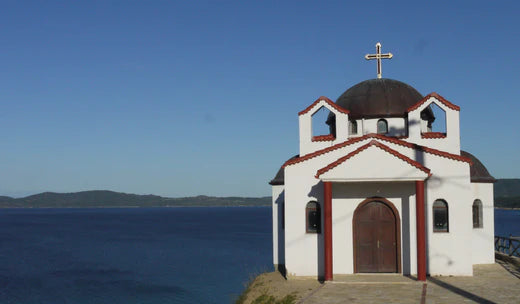
The sky has never been so blue, deep, infamously hot. The hot wind swirls her hair along the side of the road. She has sunglasses that hide her delicate eyes. She waits next to her flashy car. Her husband is inside. Patient. She waves, from afar. And then, she smiled shyly, forced to appear relaxed. Her English has a disturbing accent. She says: hello, I'm Maria, I'll explain to you in a few words, stay focused. She doesn't seem to be laughing. She is a representative of the Greek Ministry of Tourism. She announces that it is neither a game nor a hobby. She explains, seriously, that this journey to Mount Athos is like a secret mission, without revealing the enigmas and the stages.
From Athens, you have to follow the Greek curves to Thessaloniki. From there, you have to go to the shores of the Aegean Sea, clear, transparent, extending to infinity. You then have to sleep a night in the wind in Ouranoupolis. You have to wake up at dawn, your heads undone, the sun caressing the shadows of the mountains and the seas. You have to drive to an office with poor air conditioning, bland walls and a rickety chandelier. There are five heads behind the counter. It is morning. It's not even cool. Ouranoupolis is a Greek city like a security gate before Mount Athos. Agents check identities and issue a visa to each person. The sesame of the gods costs thirty euros. The agent places an official stamp from the Mount Athos authorities on falsely yellowed paper. The money of the faithful who, for the most part, go there once a month, will mysteriously go to the monasteries to rebuild a wall, grow apples or maintain the painting.
The fan continues to spin in circles in the office. The agent says that the boat for Mount Athos leaves from the other side, not long. You have to hurry so as not to miss it. This is the last stage of the journey which has lasted three thousand kilometers. The shore is blue, bathed in the sun's rays. The boats float quietly, stuck to the docks. It is a village port with a beautiful bay. The sinners escape, far away, on boats of misery. The faithful arrive by car. Park nearby. A wife, a child, a friend leave. They have plastic bags and luggage. They make this trip regularly. They find another faithful, an acquaintance. They greet each other, chat a little, try to find some shade. It is a port where faiths meet. Where we leave, in the morning, almost at dawn, to the energies of the gods. Meanwhile, at dawn, Europe hatches and wakes up without making any noise.
The boat is a shuttle that goes back and forth every day at the same times. You have to pay another ten or twenty balls. The money will go somewhere. You shouldn't ask too many questions. And then, you have to sit on blue seats, in the calm below or in the wind above. Maria, the envoy from the Greek tourism ministry, had warned that this trip organized for several months was an exception. Usually these are the faithful. Journalists are struggling. And tourists gravitate around it, without ever being able to access Mount Athos. The boats show the ratings. From afar, the monasteries facing the sea can be seen. The curious take photos with long-range zoom lenses. There are ten thousand of them, in the summer, who visit this peninsula without being able to touch it. Just by looking at its nature, its wildness, its deserted beaches and its elusive crosses.
The boat slowly flies away. The sea is rough. It makes hearts swing to the left, then to the right. There is a Russian man and his son taking photos on the bridge. One takes the other, the other takes the one. They live between New York and Moscow. They come regularly to Mount Athos.
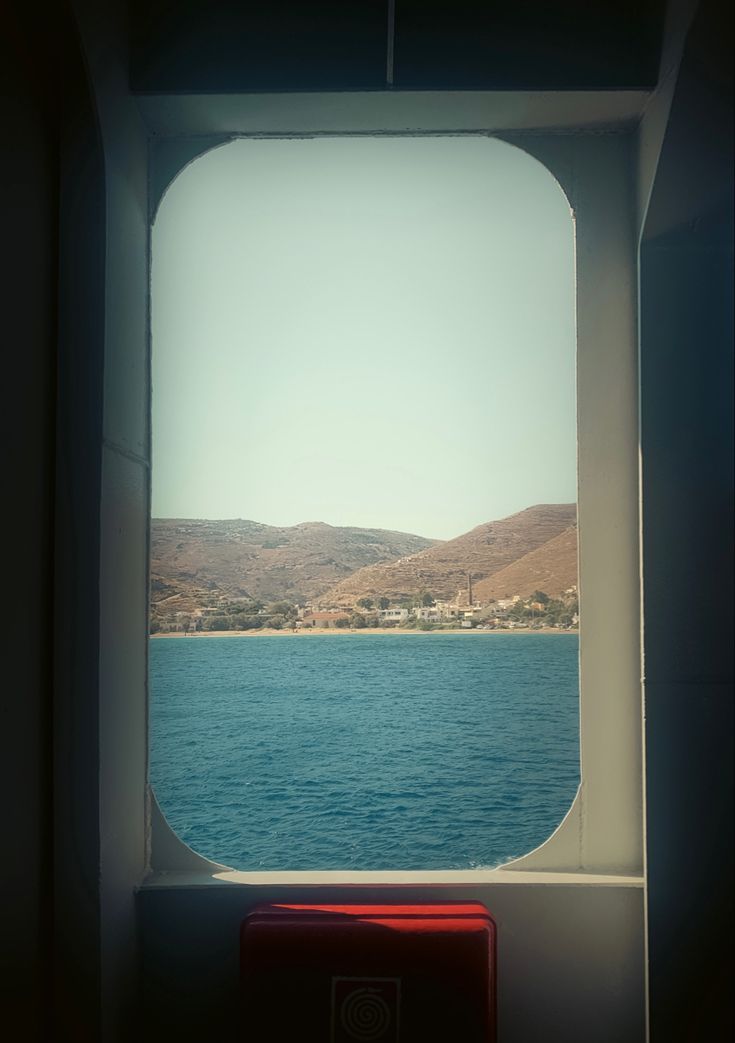
view of a ferry boat, greece
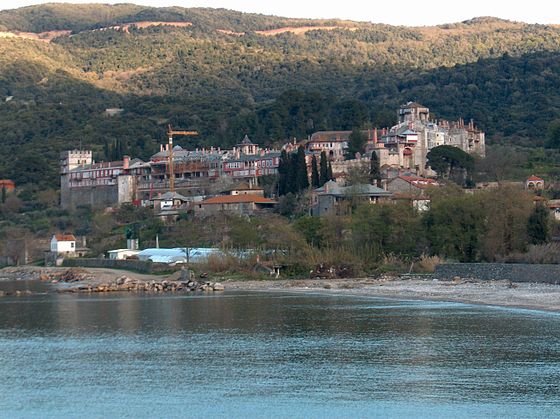
It is a special enclosure: closed to women since 1045, this Virgin Peninsula, as it is commonly called, is not open to the outside world. The information comes in bits and pieces. Joys and sorrows stop at borders. On Mount Athos, there is only God somewhere and his thousand monks spread across twenty monasteries. Some, perched on impassable mountains. Others, at the water's edge. Like the Vatopedi monastery, where the boat docks after a little over an hour of floating.
It is the most important, the most flamboyant, the largest monastery on the forty-kilometer peninsula. Its architecture is gigantic. The ancient walls vibrate with their painted, historical frescoes. The courtyard is paved. The monks cross paths there like enigmatic black shadows. The two monastery churches are dripping with gold chandeliers, candles, sacred paintings, ceilings decorated with Jesus and incense that burns during masses. It is this incense that perfumes the daily life of monks.
General view of Vatopedi Monastery
The monks of Vatopedi repeat the same day every day. Get up at half past three, when the demons are still partying. Going to mass, in the dark. The church is lit, at that time, by a few lit candles, revealing a face, a body, a tilt, a voice whispering a prayer. Later, work on his occupations. Return to mass. Lunch some bread, olives and tomatoes. Go to bed, not for long. Return to mass until evening. Sleep, finally, with a wandering mind. Every day, start again, the same awakening, the same journey of faith. This is enough for us, testifies a monk, we do not need more. He continues, dryly: we do not have the right to entertainment and leisure.
Another continues: here, we don't get distracted by current events or family matters. They remain, infinitely believing and convinced, far from their loved ones, cut off from political crises, volunteering for tasks and duties.
In Vatopedi, after the first mass, and then in the evening a little later, the monks get busy with their work. Everyone has a job. A French monk, in one of the upper corridors of the building, has a small office where he binds books. He stays there when he is not praying. It is quiet. Through the window, there is the sea, flat and immaculate. On the shelves, books and accessories. He has been at Mount Athos for ten years. His beard has turned white. His costume has retained its darkness from the first days. He says: I was a culture journalist at Combats. He spent his crazy years in Paris in the 80s, where the nights resembled epics without a future or a great ejaculation. He continues: one day, I wrote an article about Régine in Bobino, I thought she was a tranny, that one. He says that before settling down, forever, he experienced delusions and fantasies. His brother sometimes comes to see him. He remains connected by noises, here and there, of decadent news. He calmly analyzes Le Pen's success, which does not surprise him. He says: France is racist.
In the courtyard, where the air currents pass and disappear, another French monk rushes to the church. He stops. He speaks softly. He almost whispers. He hasn't heard French spoken in a long time. He is surprised. He arrived without ever leaving, like everyone else, by boat, twenty-eight years ago. It was already sunny. There was already the rhythm of days that are the same, over and over again. In France, he comes from Lorraine. Since then, the Arcelor-Mittal blast furnaces have had time to cool and then die. He almost takes his breath away as he asks if they're still filming. He barely knows who François Hollande is. When he arrived, he didn't leave there for seven years. The world has gradually disguised itself. It’s a shock, he said. His family is far from him. He thinks it's better this way. He just says, I hope if my brothers and sisters die, I'll know.
Meals start again. Masses too. Behind a discreet door, the monks' private collection, which bears witness to what Mount Athos has been over the centuries. Letters from the Turkish sultan, sacred treasures, when the island was invaded by the Ottoman Empire. Gifts, from the local kingdoms. In a corner, hidden at the bottom of a window, there is a box from the wedding of Camilla and Prince Charles, closing a piece of the cake, condemned to rot there. A monk: he often comes to visit us because he is Orthodox, but he doesn't show it. He continues on his flamboyant line: Putin is coming too. He loves our wine. And he cites, in spades, Papandreou, Samaras and all the other Greek decision-makers, who came to taste the blessing of Mount. Like confessions of power. Around, nature, noisy, continues to rustle with the wind. The trees are peppered with shivers. The flowers are springing up. A few cars wander along the mountain and valley paths, passing from one monastery to another. Green is wild. In the church, the same show is replayed one last time, until tomorrow. A monk begins by burning incense. It dilutes the smell in the chapel. It's a smell that, after a while, becomes familiar. We tame it. We discover it when it approaches, bringing forth a new verse, a new possibility.
The incense, like the rest, is made on site. By monks. The resin arrives from Ethiopia, in the form of large yellow blocks. The monks, intended for incense, spend their time, in a workshop on the ground floor, near the entrance to the church, grinding it, drying it and cutting it into pieces. They come out with small balls, coated with white powder, of different sizes. Make boxes, more or less large. They work without saying a word, their hands immersed in the smell it creates every day. They are focused. In the workshop next door, friendly colleagues work to make creams from herbs harvested in the heights of the island. A monk promises that his creams have powers. To heal, to make the skin kind or to repair a break. The monk, in charge of the creams, says that the sick who pass through here inhale a plant or massage themselves without violence, and then leave looking dapper.
An American monk, with a combed beard, awaits the hour of death which will take him, one day, between a mass and a meal, between two celebrations and two nights. He is not scared. He says she will come and fish for him, like all the others before. That she will win. He will end up boneless in the pit, near the monastery. His skull, more or less yellowed, will be stored on the shelves of a small wooden cabin. Inside, the skulls sleep until eternity. Teeth sometimes get caught. Jaws are trembling. The American monk, at Mount Athos for seventeen years, looks at them, touches them. He knows that beyond that, he will never be able to come out. Only his mind will escape, in complete freedom, he hopes.
The boat returns, a few days later, to the same dock. He fishes for the faithful who return to their habits, at the end of the water. Another life, more modern, faster, more submerged. Where Rihanna continues to make teenagers horny. Where conflicts, wars, rage, hatred abound. Where, sometimes, it is necessary to protect ourselves from too much of everything. The boat leaves slowly. The odds disappear behind the waves. The monasteries also disappear into the landscape. This place exists. To life, to death.
Mehdi Meklat and Badroudine Said Abdallah
Sign up to receive the future dispatch from the Officine
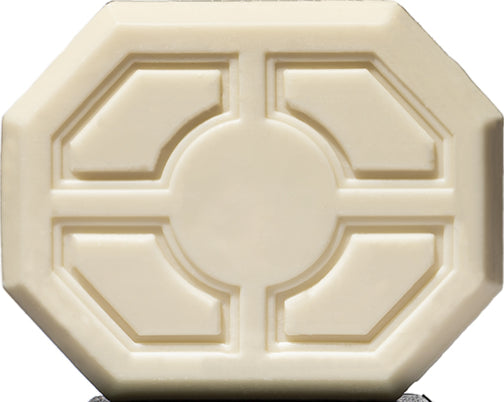
We will send you an email to reset your password
Your cart is currently empty
Upon request, your purchases are wrapped in a printed paper reproducing an old newspaper or slipped into an elegant, green-marbled gift pochette, as an homage to the creation and history of the Officine Universelle Buly.
The Exceptional origata gift wrapWHETHER FLORAL, STRIPED OR CHECKERED, AND ALWAYS HIGHLY CHROMATIC, THESE JAPANESE PAPERS ARE INSPIRED BY THE MOTIFS RESERVED FOR KIMONOS AND ARE FOLDED ACCORDING TO THE HIGHLY CODIFIED ART OF ORIGATA.
Monogram gift wrapThe initials of the fortunate recipient are embossed on the elegantly textured gift paper. Gilded in the old-fashioned style, the initials are then highlighted with a velvet ribbon.
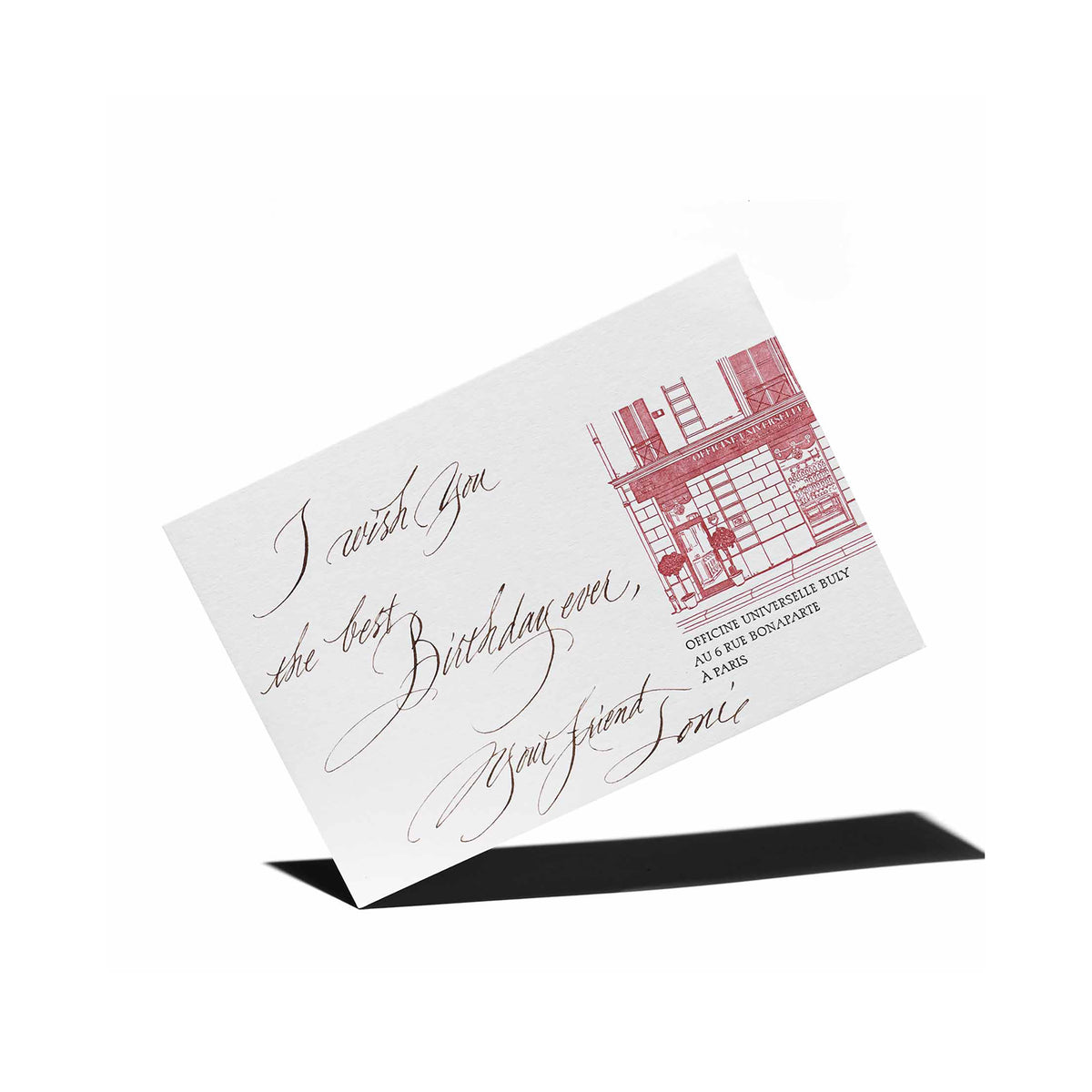
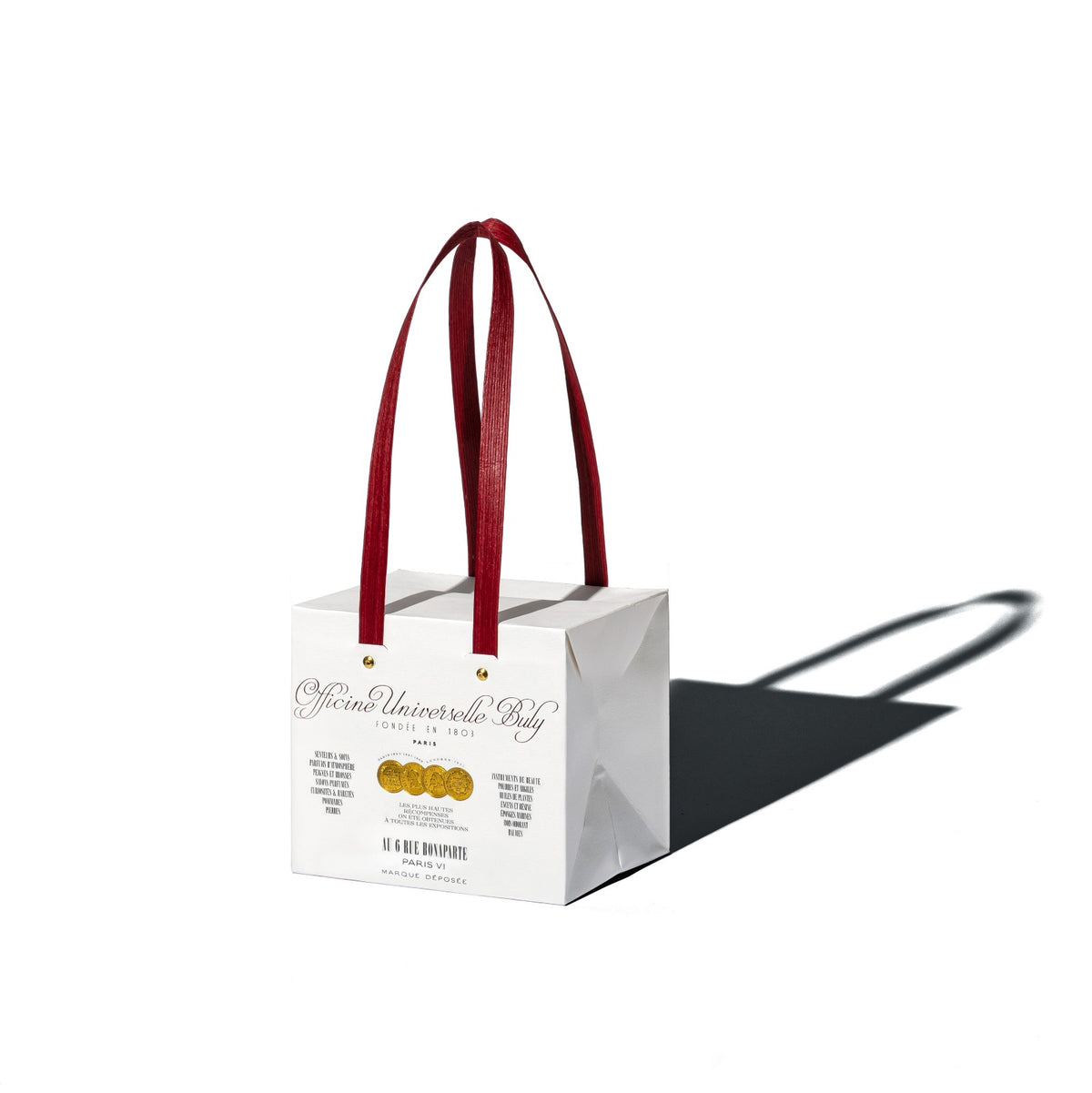
Choose the size of your bag
XS: Miniature case for small comb, soap or baume des muses ∙ 2,00 €
S: Travel companion for perfumed vials ∙ 2,00 €
M: Distinguished bag for scented candles and large books ∙ 2,00 €
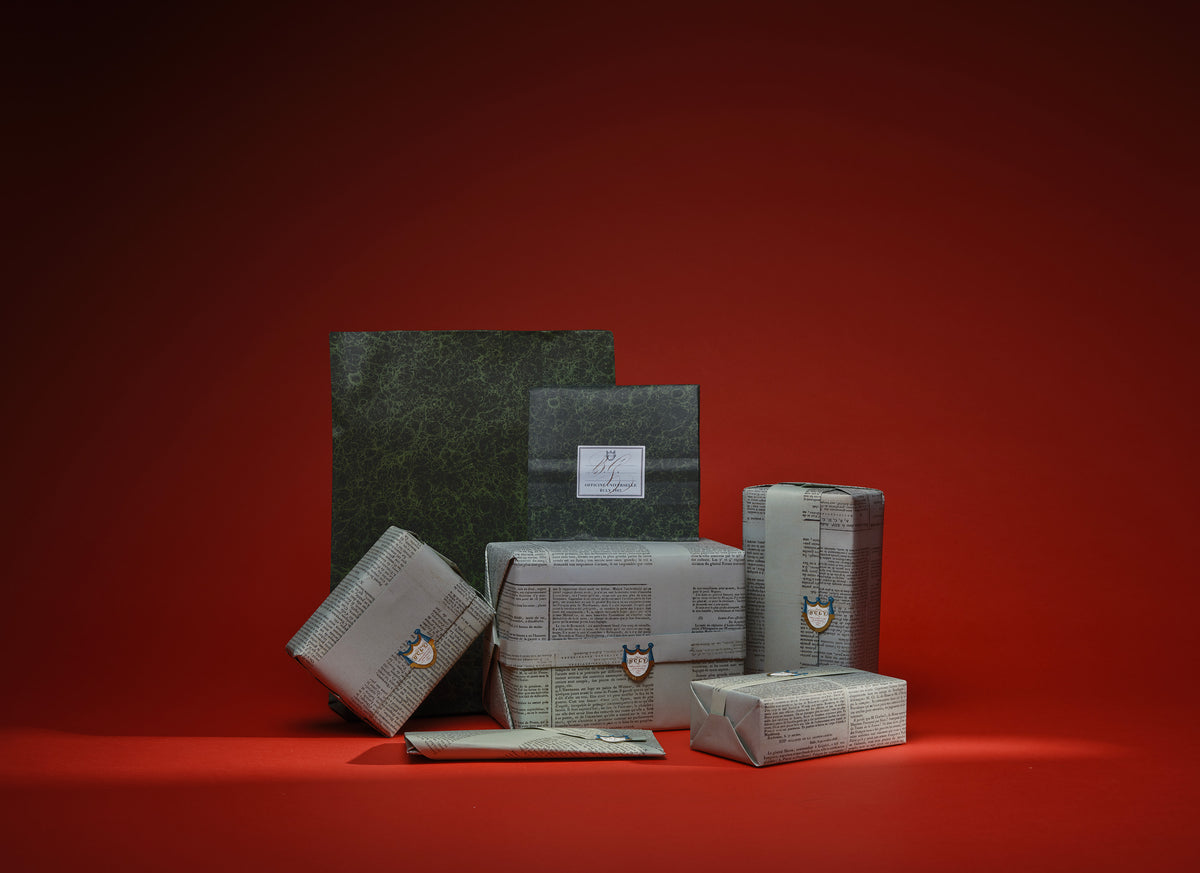
Select the products to be gift wrapped
These products are already gift-wrapped
None of the product in the cart are compatible with this service

Select the products to be gift wrapped
These products are already gift-wrapped
None of the product in the cart are compatible with this service

Select the products to be gift wrapped
These products are already gift-wrapped
None of the product in the cart are compatible with this service
Every request will be respected as far as possible and the possibilities are great at Officine Universelle Buly.
Quantity :

Have your initials or those of the lucky recipient engraved in the heart of your Savon Superfin.
Have your accessory engraved with your initials, your name, or those of the person you’re gifting it to.
Have your initials or those of the lucky recipient of this gift engraved on the kit, the balm, the comb and on the toothbrush
Our bottles, candles and incenses are carefully packaged with handwritten calligraphy labels.
Our master calligrapher, armed with a quill and ancient ink pads, will create a wonderful bookplate on the title page.
We mail your calligraphic message directly to your recipient.
Please enter valid characters only
However, it seems that you are in Japan, would you like to switch to our Japanese website based in Tokyo?
Visit our StoreWe think you're in .
Update your delivery location?